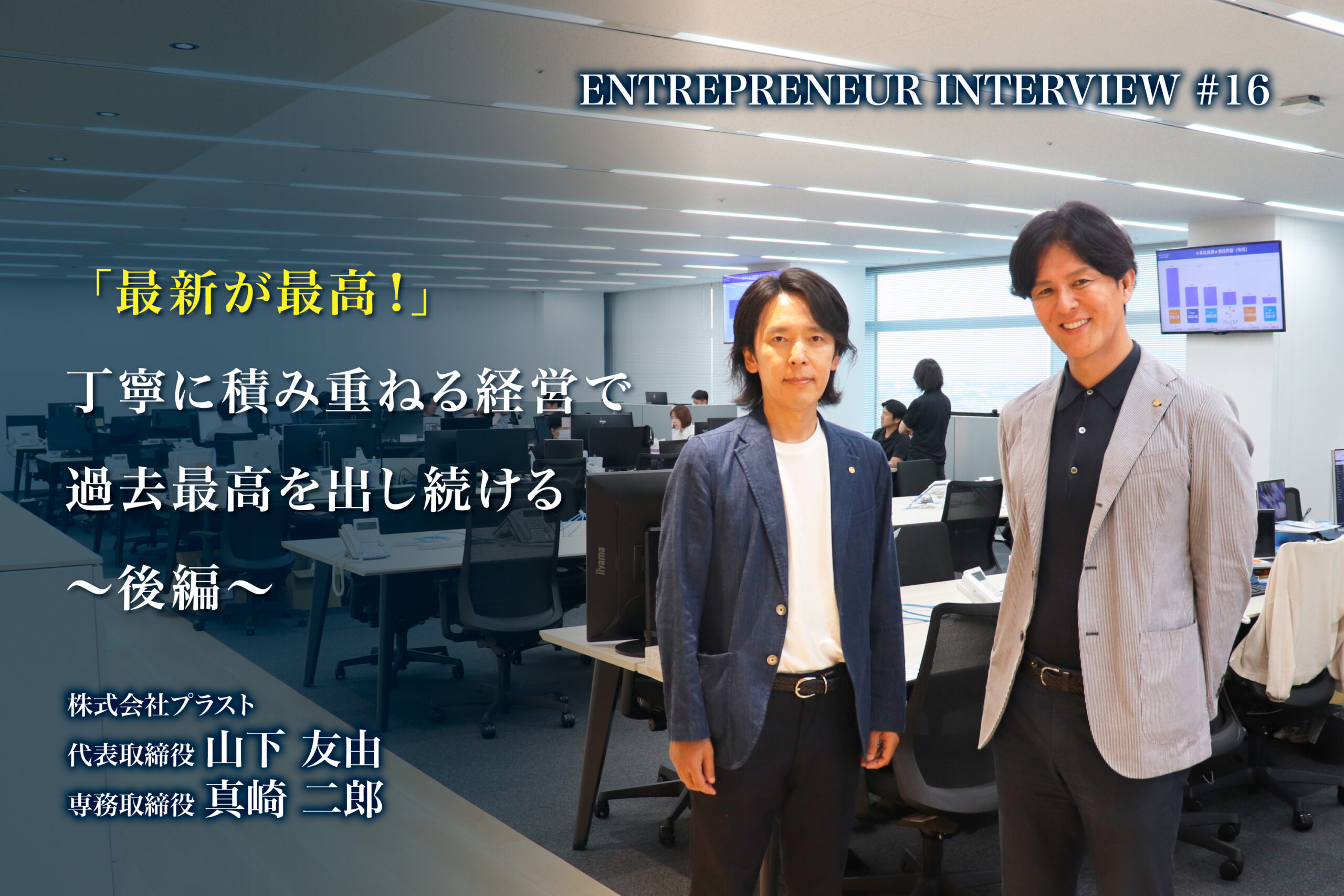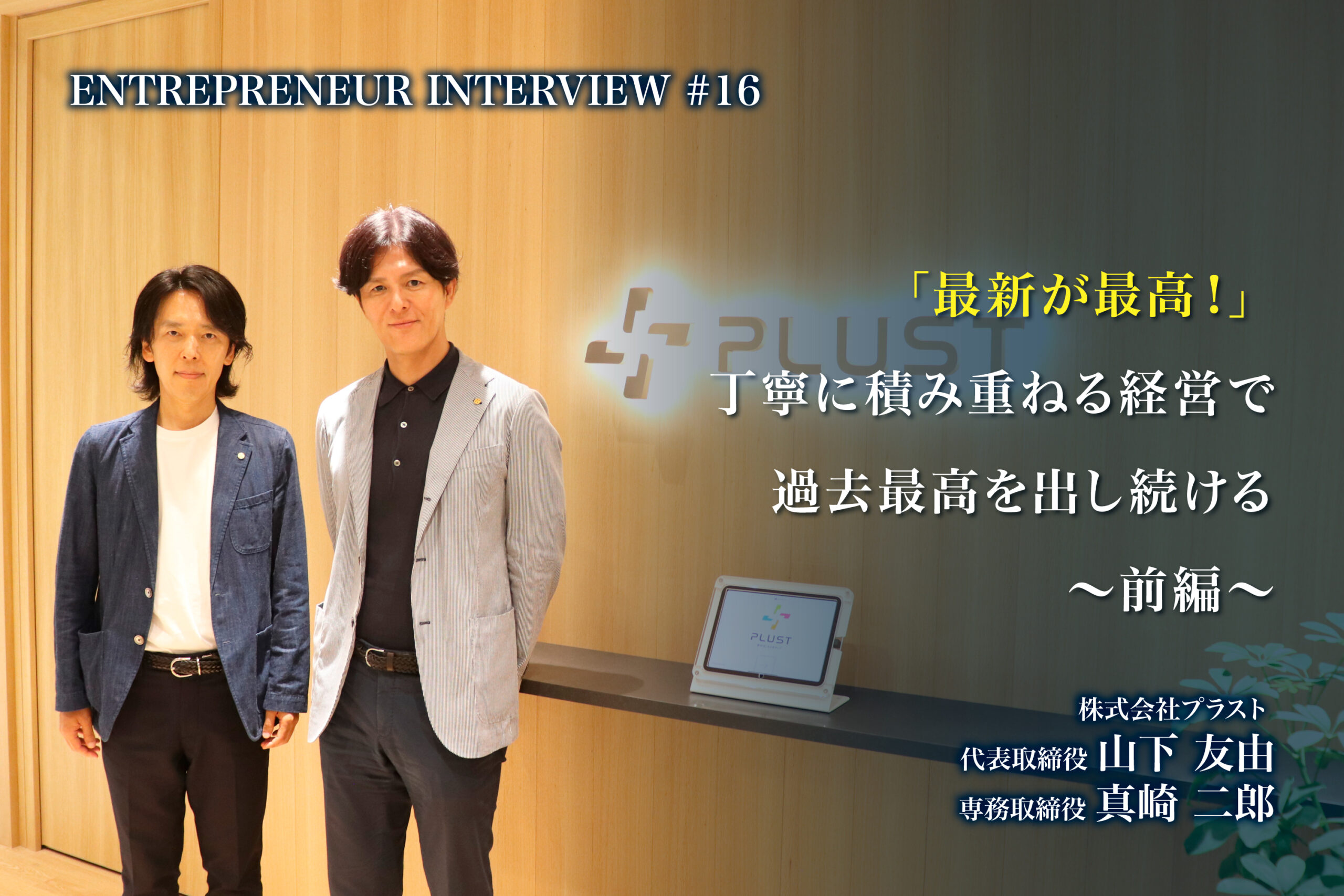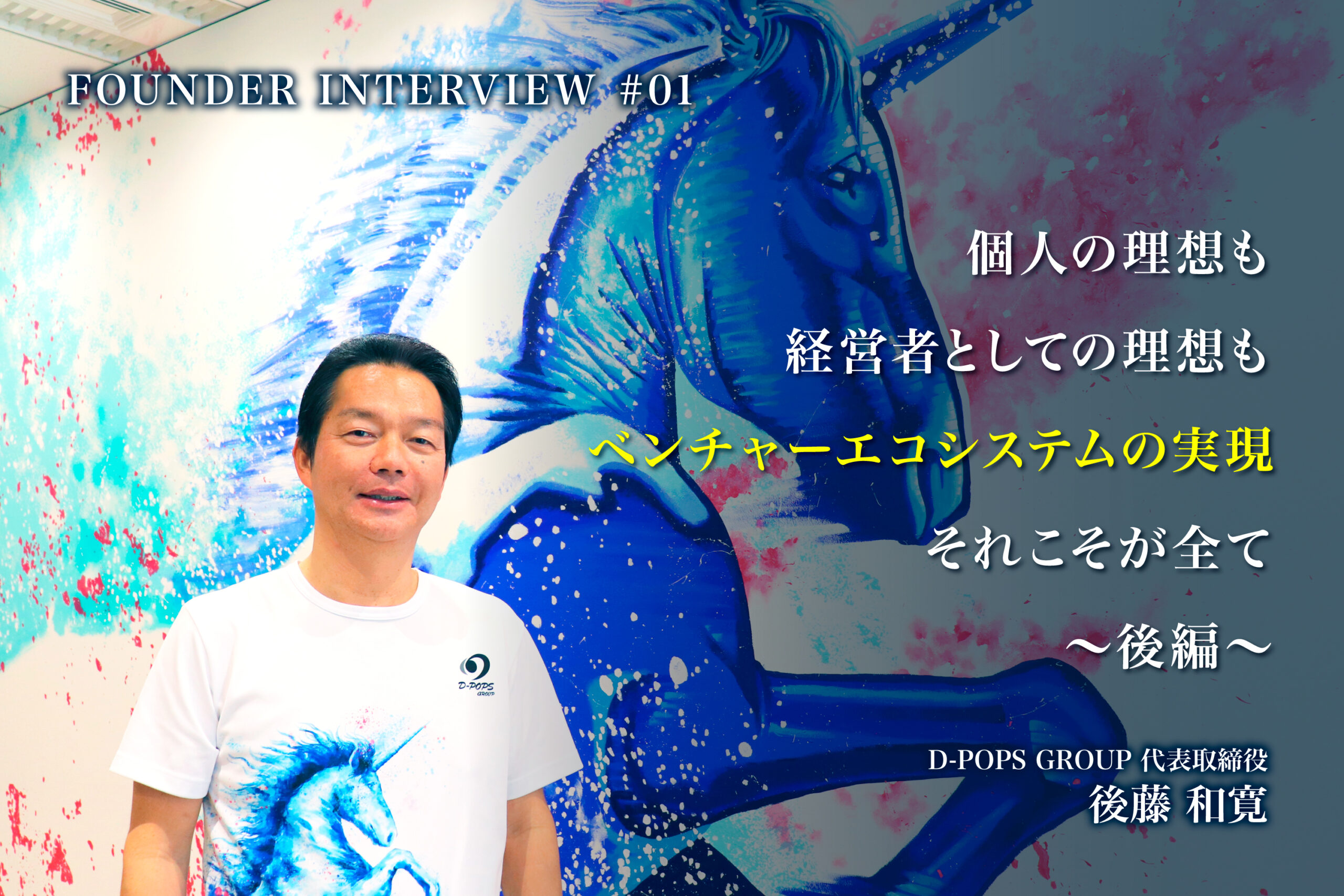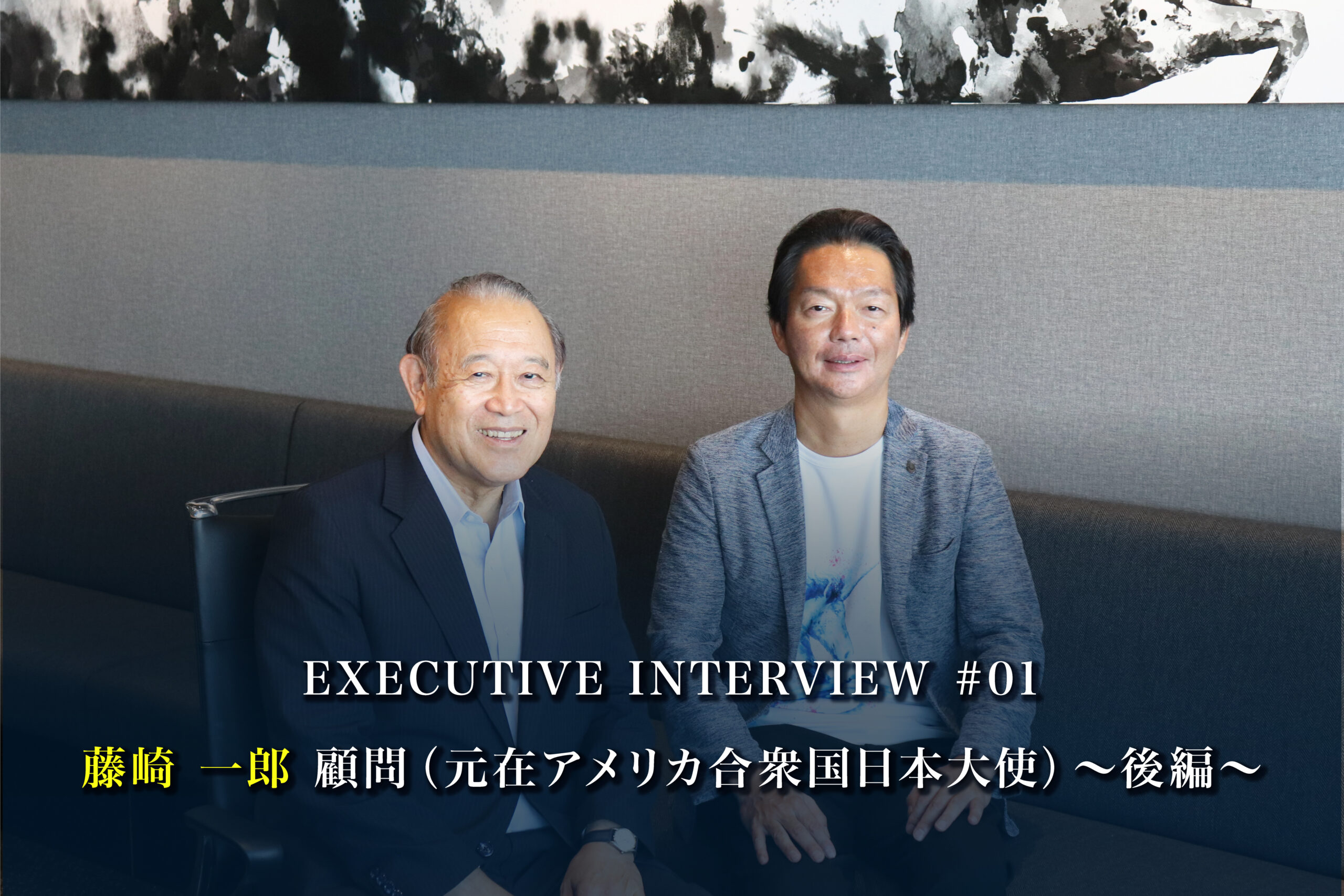
Our President and CEO Kazuhiro Goto interviewed Ichiro Fujisaki, who is a former Ambassador Extraordinary and Plenipotentiary of Japan to the United States. Advisor Fujisaki was appointed as an advisor to D-POPS GROUP in April 2023 to help realize a Venture Ecosystem.
This article is based on the latter part of the interview.
You can view Advisor Fujisaki’s profile here:
https://d-pops-group.co.jp/en/company/board-member/
Read the first part of the interview here.
Goto:
Now, for the next question: you have experience serving as an outside director at major Japanese corporations like Nippon Steel and Itochu. How did working in the Ministry of Foreign Affairs feel different from working in the private sector? Were there any similarities?
Fujisaki:
One major difference I felt between the Ministry of Foreign Affairs and large corporations was that when making decisions at the Ministry, we always had to consider how things would look to someone from the outside—in other words, accountability. I felt this was different in the private sector.
In a government office, you are constantly exposed to the media and the National Diet. Even the smallest mistake requires a public announcement. For example, if a tax office somewhere loses 300,000 yen and doesn’t report it, it would turn into a huge scandal, and they’d be accused of trying to cover it up. It’s the same with the police.
On the other hand, if a company loses 300,000 yen but finds it right away, they simply remind employees to be more careful next time. Ultimately, it’s something that can be controlled by the company’s management.
I feel like in the government, we spend too much energy on this kind of thing.
Another difference is that the Ministry of Foreign Affairs was a much flatter organization compared to large corporations. Even younger employees were allowed to participate in high-level discussions and voice their opinions. In contrast, corporate hierarchies seem to be much stricter.
Goto:
I think so, too. Most companies in society follow a pyramid structure, so even if a young person works extremely hard or has exceptional ability, it still takes an incredibly long time to get promoted. That’s why I felt we needed to create more companies that offer young people real opportunities, or else there’ll be no future. That was one of the reasons I started my own company.
Fujisaki:
Exactly. That’s really important. Otherwise, young talent will just leave for opportunities overseas.
Goto:
Now, we’ve progressed even more from that point. Initially, we focused on building a company that gives young people opportunities, but now our goals have expanded to increasing the number of entrepreneurs in Japan and spreading a culture of taking on challenges and having a more open-mind. By doing so, we hope young people will have more options—whether it’s choosing where to work, what challenges to take on, or even starting their own business. I believe we need to create a society where entrepreneurship itself is celebrated, and that’s what I’m working hard to achieve.
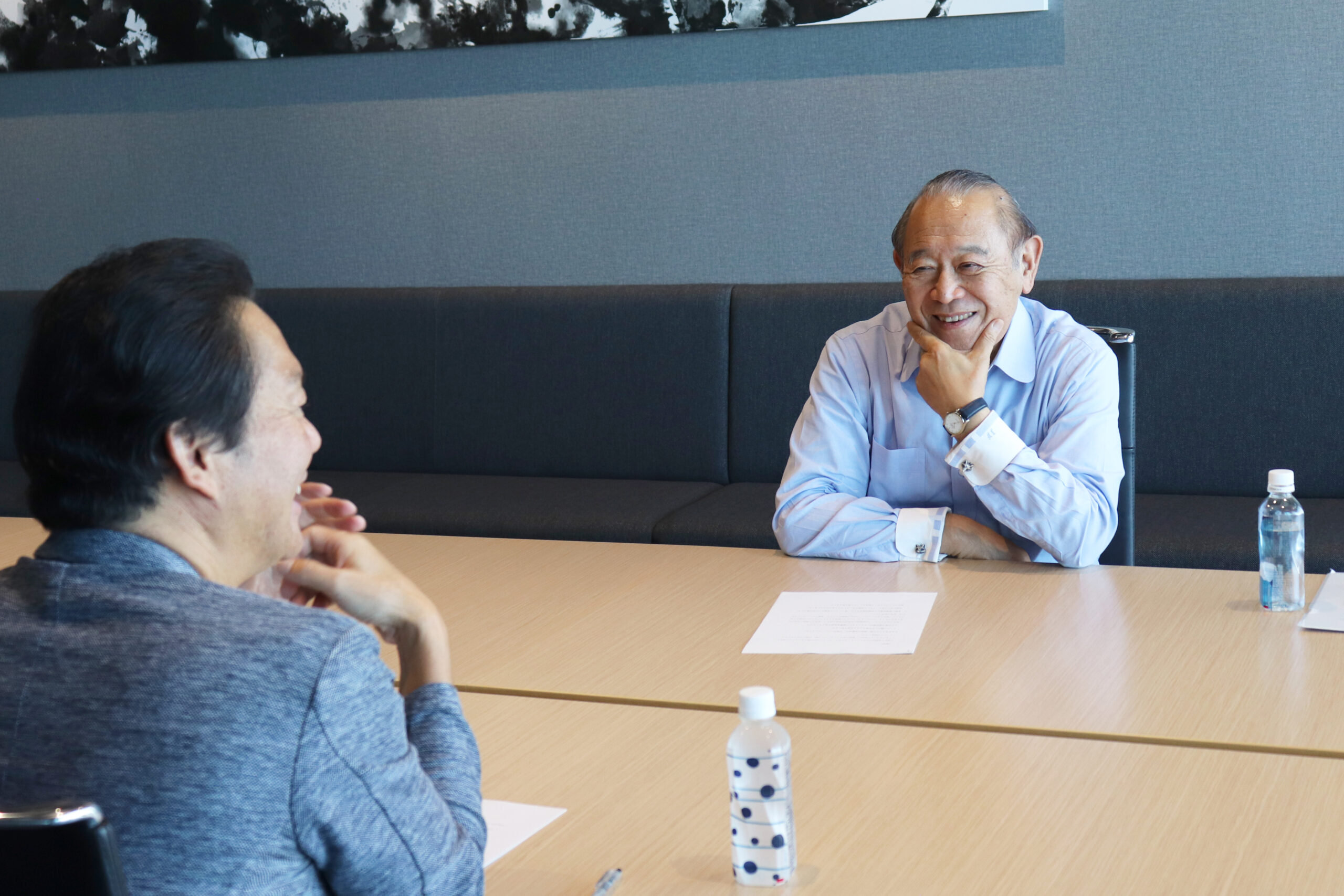
At this point, Ambassador Fujisaki, I’d like to ask you the following question. Given your experience negotiating with various countries during your time at the Ministry of Foreign Affairs, with regard to managing the balance of power when dealing with several major global players: in order to firmly maintain and enhance Japan’s presence on the world stage, how do you think Japan should balance its relationships with the United States, the EU, and other major powers such as those in the BRICS group?
Fujisaki:
When I recently spoke with a top executive at a major corporation, he remarked, “In light of the dealings in Ukraine, North Korea, and China over these past 10 years, shouldn’t we set aside our belief in the inherent goodness of people—especially as it relates to democracy and peace—and instead operate on the assumption that human nature is essentially bad?” I replied, “No, it’s both at the same time. Our official stance is that humanity is good, but behind the scenes, we always assume the opposite. The core of national security is preparing for the possibility that anyone might do anything.”
Considering that Japan is neighbored by North Korea, Russia, and China, we have no choice but to depend on the United States for our security. However, that does not mean we must adopt the exact same policies as the US. Unlike the US, Japan has consistently maintained good relations with countries such as Cuba, Iran, and Myanmar, and even after the US pulled out, we continued with initiatives like the TPP [Trans-Pacific Partnership] and the Paris Agreement. We’re managing these relationships effectively without being overly vocal about it. The nations in the Global South and BRICS are by no means monolithic, so it’s important for us to build the best possible relationships with India, South Africa, Brazil, and others among them.
When you travel abroad, you often hear that many people hold Japan in high regard and have a positive impression of it. So, I believe that, fundamentally, our current approach is working well.
However, one area that requires caution is India. While India is often seen in a favorable light—partly because China is cast as the villain—it is, in reality, a very shrewd nation. Although I’ve only negotiated with India a few times, it turned out to be the most challenging negotiation partner I’ve ever encountered.
Goto:
In the serial articles you wrote for the Sankei Shimbun newspaper, you mentioned that Japanese people consider their nation to be somewhat unreliable, but at the same time, they think it is wonderful that in the past 70 years since the Great War, Japan has not entered into a single war. After reading that, I also thought, “Indeed, what a great accomplishment that is!”
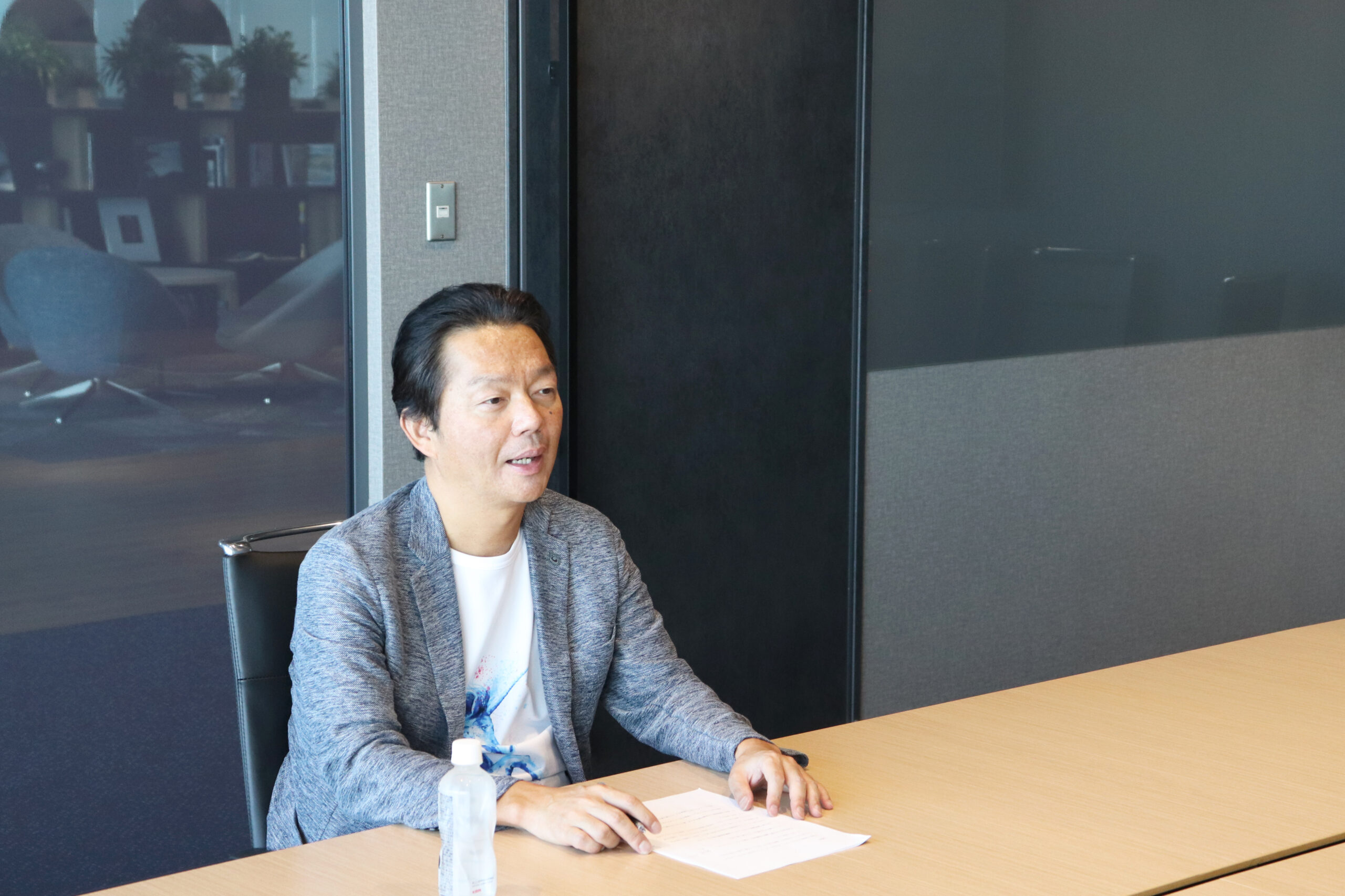
Well, here is the next question: we often talk about the Lost Thirty Years*. From a global perspective, why do you think Japan has fallen behind in terms of economic growth and development? I think the situation has changed significantly since the publication of American sociologist Ezra F. Vogel’s book Japan as Number One: Lessons for America.
*Note: Japan experienced around 30 years of significant economic stagnation after the asset price bubble burst in 1990, known as “the Lost Decades”.
Fujisaki:
It was never really possible for Japan to become number one in the first place. We are a tiny country with no resources, yet 100 million people live here. With such limited land, we have to import considerable amounts of food and other resources, so becoming number one was never feasible. Since Vogel was my friend, it pains me to say this, but his book was essentially a strategy to boost sales through flattery.
For a country with scarce natural resources like Japan, it is critical not to overreach. I don’t think it was good for us to completely abandon our industrial policies just because the US said so. Instead, we should have created something like Silicon Valley through government and business cooperation.
On the other hand, I don’t think there’s anywhere as clean and comfortable as Japan. In terms of soft power, Japan is such an exceptional country that I refer to it as “A-Ka-Se-Ki-Rei” (initials of the Japanese words for ‘safety’, ‘security’, ‘cleanliness’, ‘discipline’, and ‘manners’).
Although Japan’s declining population is usually seen as concerning, maybe this small country doesn’t really need 100 million people. After all, Japan has one-third of the US population squeezed into an area the size of California, and 80% of Japan is mountainous. Perhaps it wouldn’t be so bad if Japan’s population decreased somewhat.
Having a domestic market such as the old automobile industry is not necessary. Rather, we should have been thinking about creating businesses regardless of the domestic market, like Taiwan’s TSMC or Finland’s Nokia. We should have developed industrial policies with this in mind. I think our nation’s current situation probably stems from our failure to further pursue startups and similar initiatives.
Goto:
For about the past five years or so, there has been quite the sudden, strong push to support startup companies. Both the government and large corporations are finally accelerating their investments in venture capital. It feels like we’re only now seriously pursuing what we should have started 30 years ago.
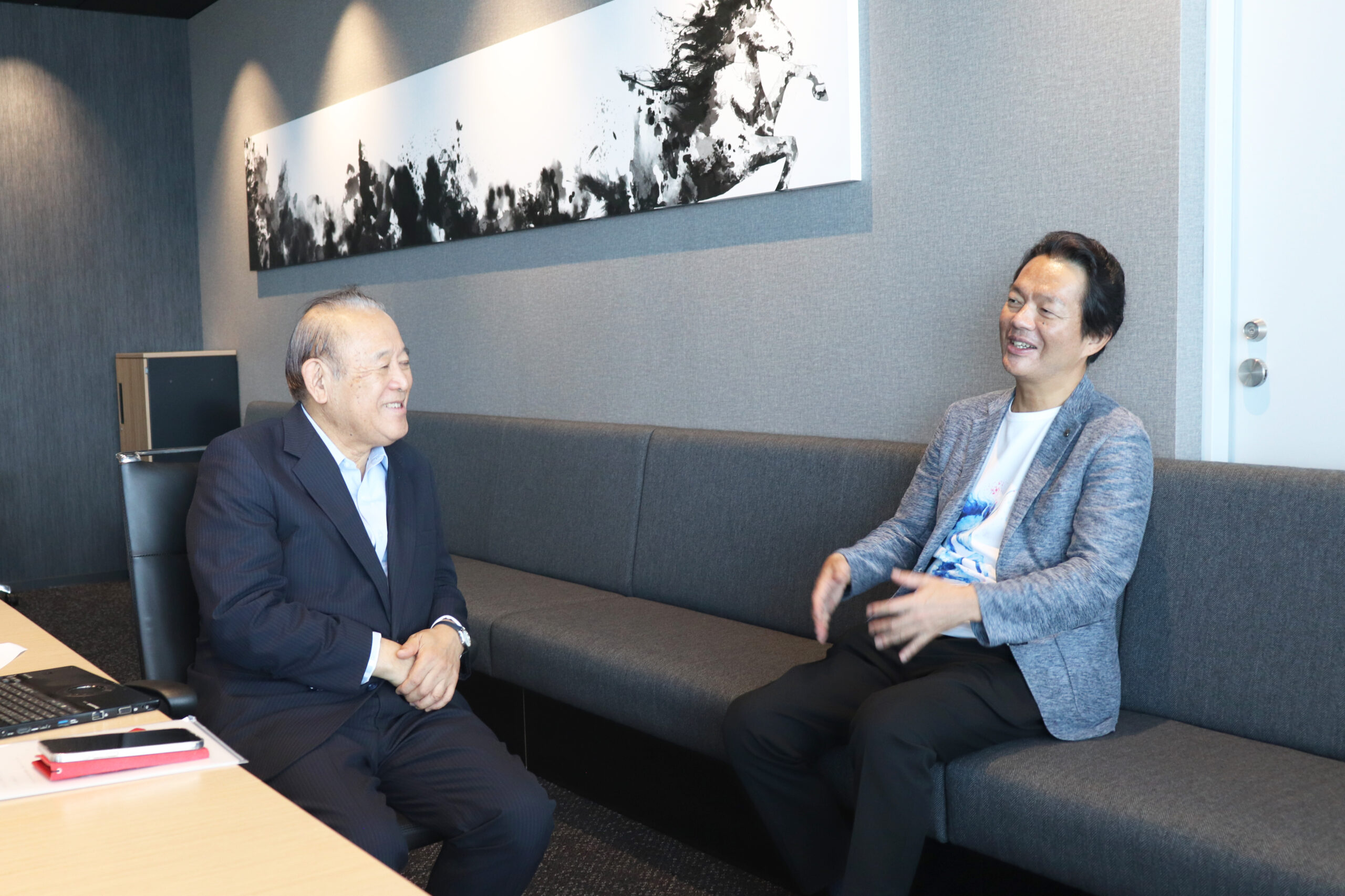
One last question for you, Ambassador Fujisaki, as someone who worked with various American presidents during your time as Ambassador to the US: among all the American presidents and the state leaders of other countries that you’ve met, who left the deepest impression on you, and why?
Fujisaki:
First, President Bill Clinton had this speaking ability where even in a crowd of 400 people, everyone felt like he was talking directly to them. And what’s remarkable about him is that he was an extraordinary intellectual. He went to Oxford University as a Rhodes Scholar, a scholarship program that only about 50 top American students per year can use.
However, I heard he hardly attended any classes. But here’s an interesting story I heard: when these 50 brilliant students gathered and discussed who among them would become America’s future leader, many of them said Clinton’s name.
He never really studied, but he was capable of academic excellence. And more than that, I think it was a kind of personal charisma. The fact that a majority of those brilliant students chose Clinton shows his remarkable ability.
Also, in terms of my personal experience, when former Prime Minister Obuchi passed away, I was Director-General of the North American Affairs Bureau at the Ministry of Foreign Affairs. At that time, Clinton came for Obuchi’s funeral. After the funeral, there was a reception at the Akasaka State Guest House, and as the Director-General, I was assigned to guide the American president. Since I was leading the way there, Clinton was hardly able to see more of me than my back, and we had minimal conversation.
Four months later, Prime Minister Mori held the Okinawa Summit. Clinton was scheduled to give a speech at the Cornerstone of Peace. Actually, we weren’t sure if he could come because he was involved in Middle East peace negotiations at the time, but in the end, he managed to come and give a speech anyway.
Afterward, people lined up to shake hands with Clinton. I was in the front row, but since I’d have the chance to talk with him again later, I moved to the back so that the local residents could meet him first. Eventually, Clinton got to me, and when he saw my face he immediately said, “Oh hey, you’re here!” Either he had an exceptional memory and was able to remember me from just being his guide in Tokyo four months earlier…or perhaps, given his famous charm, he was calling out to every fourth person or so, ha ha. Either is possible for someone with social graces like his.
Meanwhile, President Barack Obama is definitely brilliant, but he seemed to feel the need to emphasize his intellectual capabilities…perhaps as a result of being a black person? Clinton, on the other hand, never displayed his intelligence. This was one difference I noticed about them.
Goto:
Conversely, perhaps it’s because he was already so capable that, as they say, “a wise hawk hides its talons.”
Fujisaki:
Yes, that’s probably it, although he’s also a white person. As for Obama, he’s very stylish, usually appearing with his shirt sleeves rolled up. But in reality, he has an incredibly sharp mind.
Goto:
Thank you very much for making time in your busy schedule today. I’ve gained a lot of knowledge and inspiration from talking with you, and I am determined to build a Venture Ecosystem for the future of Japanese society.
Afterword by Kazuhiro Goto, President and CEO of D-POPS GROUP Co., Ltd.:
I had the distinct privilege of interviewing Mr. Fujisaki, who served in crucial diplomatic roles including Ambassador to the United States as well as the Permanent Mission of Japan’s Ambassador Extraordinary and Plenipotentiary to the International Organizations in Geneva. Through this interview, I received countless invaluable insights, experiences, and advice.
I was so excited about the interview that I could hardly contain myself, especially the day before, and the questions I wanted to ask him were even floating through my dreams. He answered all my many questions sincerely, and his responses consistently resonated with principles of corporate management.
Making decisions in the complex world of diplomacy and politics must be incredibly challenging. In business management, too, we’re constantly required to find the most appropriate solutions possible while dealing with the various matters in front of us. The experiences and advice Mr. Fujisaki shared will be valuable not only for myself and current leaders but also for future generations of leaders.
In this interview, there were so many candid statements that we also had to omit quite a bit of content. In fact, the interview itself was about ten times longer than what appears here! Even now, Mr. Fujisaki holds important positions such as President of the America-Japan Society and Advisor (formerly Chairman) to the Nakasone Peace Institute. This was truly a priceless occasion, and I earnestly feel that his knowledge and experience should be passed along to the next generation for the sake of Japan’s future.
In closing, I would like to express my heartfelt gratitude to Mr. Fujisaki one last time for giving me this precious opportunity to interview him.




